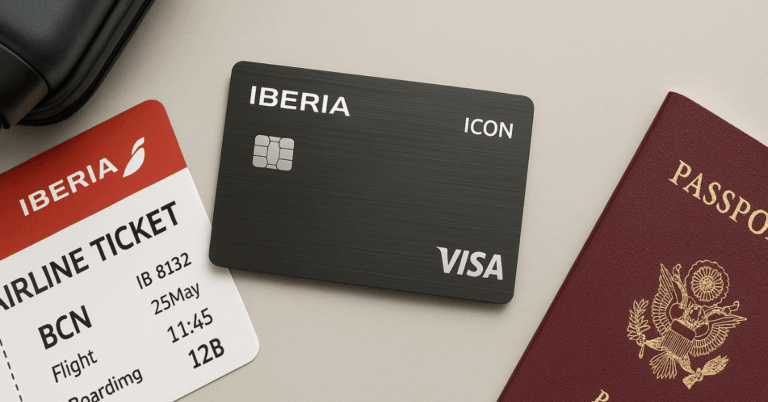Moving to a new country is both exciting and challenging. These tips for adapting to life in France will help you settle faster and with fewer surprises.
France has unique customs, systems, and social expectations that may feel unfamiliar at first. This guide equips you with key insights to help make the transition smoother and more comfortable.
Understanding the French Lifestyle
Daily life in France differs from what many newcomers expect. French culture places strong value on leisure, conversation, and routines. Understanding these rhythms will help you fit in.
Here’s how French lifestyle norms shape everyday experiences. Shops often close for lunch breaks or on Sundays. Dining is not rushed; people take their time during meals.
Work-life balance is respected, and many locals enjoy long vacations. Social interactions are formal at first, but politeness is always appreciated.

What to Know Before You Arrive?
Preparation is essential before your move. France has structured systems for immigration, housing, and healthcare. Arriving informed will reduce stress and prevent delays.
Check visa requirements based on your nationality and length of stay. Research how to find housing, whether renting or purchasing.
Prepare to open a local bank account early. Also, having basic French phrases memorized can improve your initial experience.
10 Essential Tips for Adapting to Life in France
Moving to France requires more than packing bags. These 10 essential tips will guide you through cultural, social, and administrative adjustments.
1. Learn the Language Early
Language is the foundation of integration. While many locals speak some English, speaking French earns respect.
Use free or paid language apps, or attend local classes. Practice basic greetings and everyday expressions.
Watch French TV with subtitles to get used to the accent. Language skills also help with paperwork and shopping.
2. Understand French Etiquette
French social behavior has unwritten rules. Politeness and formality are important in everyday interactions.
Always greet with “Bonjour” and say “Merci.” Learn when to use formal (vous) or informal (tu). Expect people to greet with cheek kisses in informal settings. Avoid interrupting conversations or cutting lines.
3. Get Familiar with Bureaucracy
Administrative processes in France are detailed. Patience and organization will help you succeed.
Always bring copies of ID, proof of address, and visa documents. Schedule appointments online when possible.
Many services still require physical documents. Persistence is often required in government offices.
4. Shop Like a Local
Shopping in France has its rhythm. Learn local habits to save money and avoid frustration.
Visit weekly markets for produce and cheese. Know that stores may close midday and on Sundays.
Bring reusable bags for groceries. Small talk with local vendors can build rapport.
5. Embrace Public Transportation
France has an efficient public transport network. It is often faster and cheaper than driving.
Get a Navigo or similar pass for metro and buses. Learn how to validate tickets before boarding. Regional trains connect towns and cities. Always check for strikes or schedule changes.
6. Build Social Connections
Making friends helps ease culture shock. It also creates a support system in your new environment.
Attend language exchange meetups or local events. Volunteer in your community or take a hobby class.
Join expat groups for shared experiences. Being open and curious invites positive social encounters.
7. Open a French Bank Account
Banking locally is necessary for daily life. You’ll need an account for rent, bills, and employment.
Prepare documents such as passport, proof of address, and visa. Some banks require a French phone number.
Choose between traditional banks and online options. Keep digital copies of all banking documents.
8. Understand Health System Access
France has one of the best healthcare systems. Accessing it requires registration and awareness.
Apply for a Carte Vitale through the local CPAM office. Choose a primary doctor (médecin traitant).
Consider additional top-up insurance (mutuelle). Always keep health documents organized.
9. Adapt to French Work Culture
Workplaces in France follow specific norms. Respecting these will improve professional relationships.
Expect formal communication and well-structured meetings. Punctuality is expected, but lunch breaks are sacred.
Hierarchies matter in decision-making. Networking can take place in informal social settings.
10. Explore and Appreciate French Culture
Embracing French culture enriches your experience. It’s more than museums and language.
Visit historical towns and attend local festivals. Try regional foods and learn about French wine. Appreciate arts, fashion, and literature. Celebrate local holidays and understand their meanings.

Common Challenges and How to Overcome Them?
Adjusting to life in France comes with a set of challenges. Being prepared can make the experience easier and more manageable.
- Language barriers: These may slow daily communication. Keep practicing regularly to improve.
- Bureaucracy: French administrative processes can feel slow and complex. Stay organized and patient.
- Homesickness: Missing loved ones is natural. Regular calls and familiar routines can help.
- Cultural differences: Some habits and values may seem unfamiliar. Keep an open mind and learn as you go.
- Social isolation: Building new connections takes time. Attend meetups and join local groups.
Cost of Living and Budgeting Tips
Managing your finances in France is key to a comfortable life. A smart budget helps you balance costs and avoid unnecessary expenses.
- Rent costs: Paris is the most expensive, while rural towns are significantly cheaper.
- Transportation: Public transit is affordable and well-connected compared to driving.
- Groceries: Local markets offer fresher and cheaper produce than supermarkets.
- Utilities: Costs vary by region; budget monthly for electricity, water, and internet.
- Money tools: Use budgeting apps to track spending and uncover hidden costs.
Navigating French Social Systems
France has strong public services. Understanding them gives access to support and resources.
CAF can help with housing benefits. Pôle Emploi supports job seekers and career advice.
CPAM manages public health services. Learn how to apply online or book appointments in person.
Staying Legal: Visas and Residency
Following legal requirements ensures peace of mind. Always keep your documents current.
Long-stay visa holders must validate through OFII. Apply for a carte de séjour if staying longer.
Track deadlines and gather paperwork early. Consult the official immigration site for updates.
Adapting as a Family or Student
Families and students face unique challenges. Planning ahead makes a big difference.
Public schools are free and high quality. Private schools offer bilingual options.
University students need to register early and gather specific paperwork. Explore support programs for families through local mairie offices.
Conclusion – Settle In with Confidence
Adapting to France takes time, but it’s achievable with the right mindset. Apply these tips for adapting to life in France to ease your transition.
Be open to learning and respectful of cultural differences. Each step forward will help you feel more at home.












